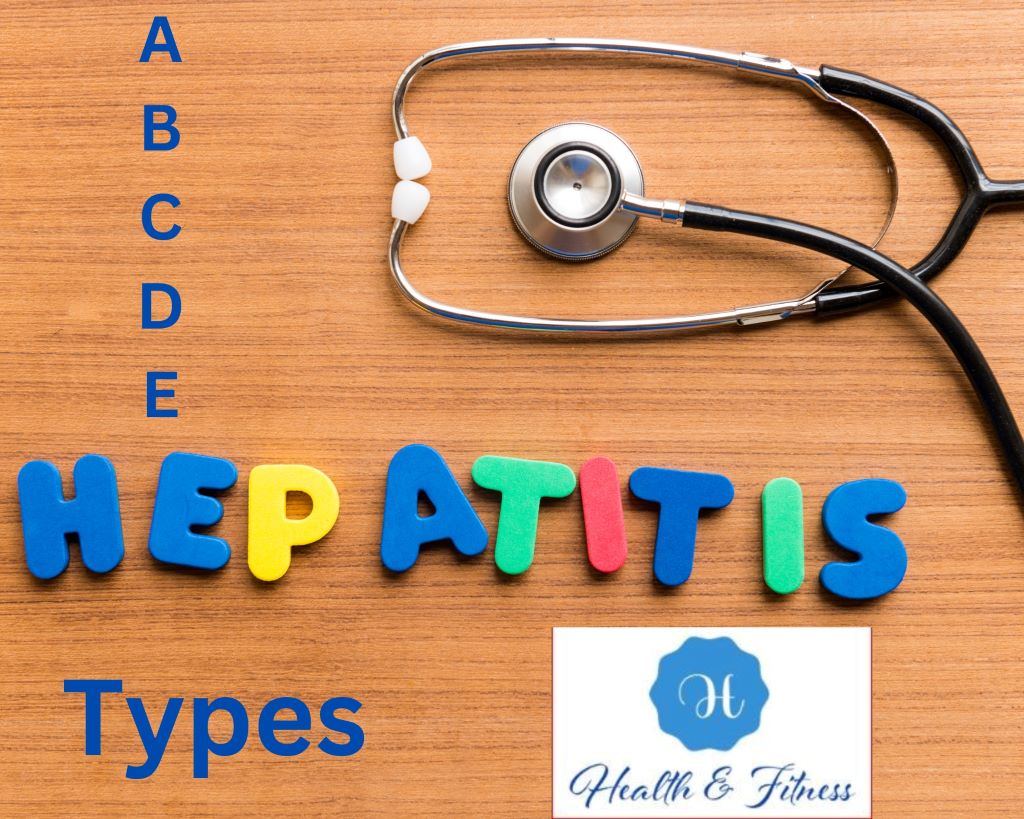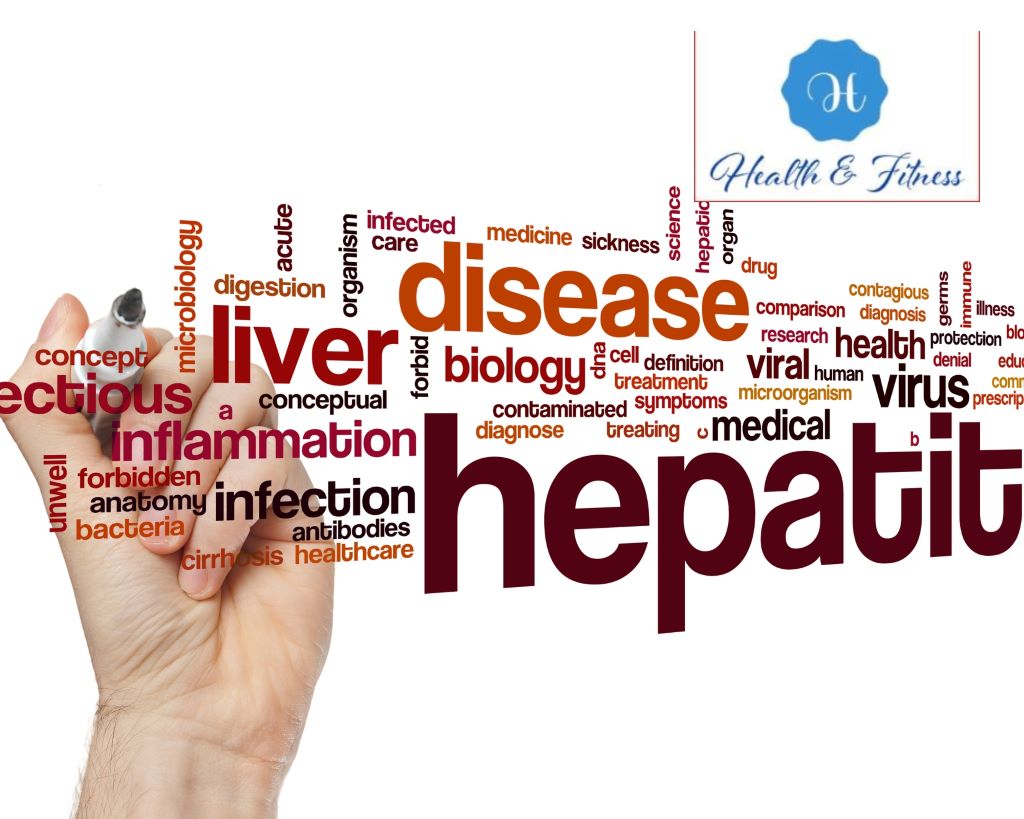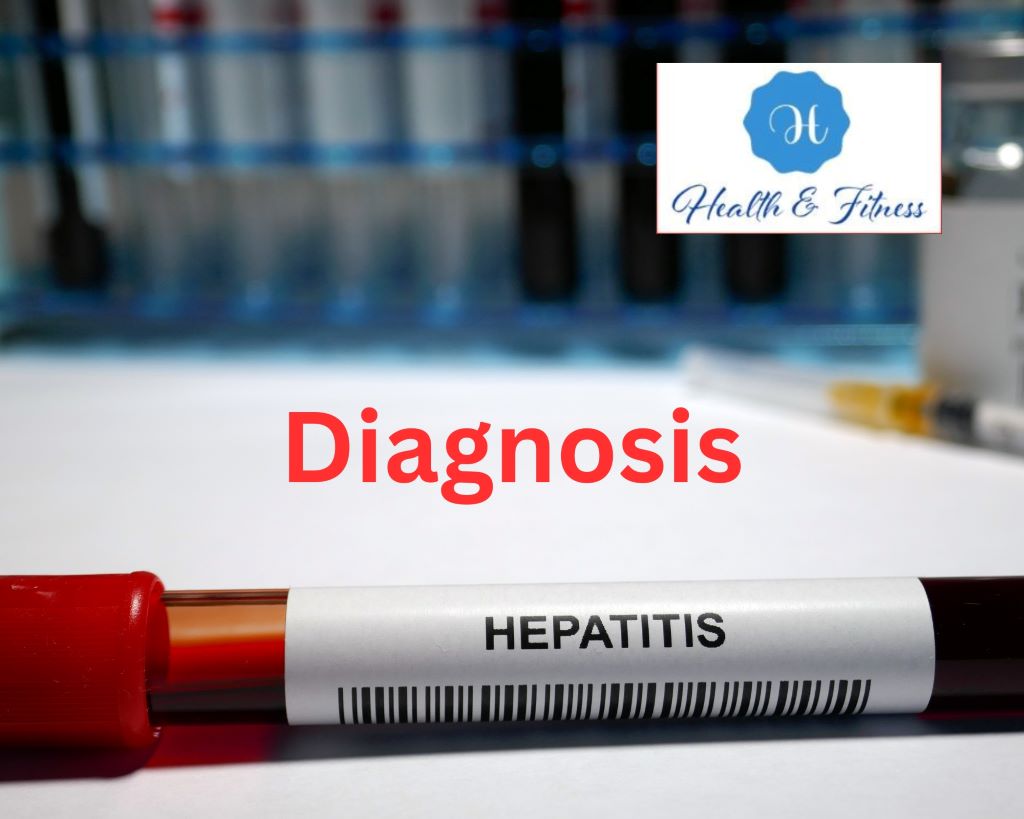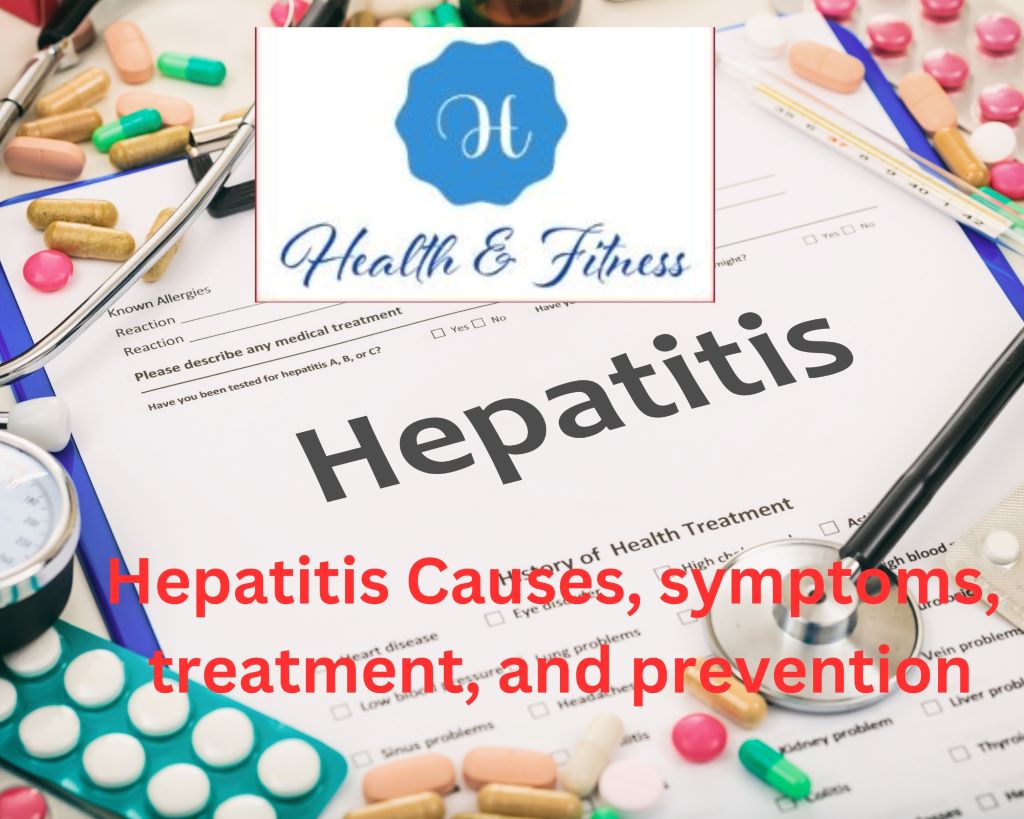Hepatitis: Symptoms, Factors, Treatment, and Prevention
Explore hepatitis causes, symptoms, treatment, and prevention strategies in this comprehensive guide. Understand the factors behind hepatitis outbreaks.
Introduction
Hepatitis is an infection of the liver that can lead to significant illness if left untreated. Inflammation in the liver, brought on by viruses or toxic exposure, is to blame for this illness. Or a condition characterized by a malfunction of the immune system. Hepatitis A, B, C, D, and E are the different types. Each one is awful in its unique way. And how to treat it in different ways.
It’s essential to know about hepatitis because it’s a common disease that can affect anyone and sometimes lead to liver failure or cancer. However, with proper diagnosis and treatment, many people with hepatic disorders can manage the condition and lead healthy lives. This blog entry covers liver disease kinds, causes, symptoms, diagnosis, treatment, and prevention.
This post will help you understand and manage liver illness.
Table of Content
Types
Causes
Complications
Diagnosis
Treatment
Prevention
Types of Hepatitis

There are five main types of liver disease hepatitis, categorized by the virus that causes liver inflammation. Each type of hepatitis has different transmission methods, severity, and treatment options.
The five types of liver disease are:
1- Hepatitis A
The highly contagious viral infection spreads through contaminated food and drink or intimate contact with infected people. During two to six weeks, hepatitis A can produce symptoms such as fever, exhaustion, nausea, vomiting, stomach discomfort, and jaundice. Cleanliness and vaccination can prevent Hepatitis A, which has no therapy.
2- Hepatitis B
Blood, semen, and other bodily fluids contain hepatitis B. Liver cancer, cirrhosis, and chronic liver disease have all been linked to hepatitis B and A. Antiviral medicine and liver transplantation are both viable alternatives for treating Hepatitis B. The infection can be prevented by getting vaccinated and practicing safe sex and other precautions to avoid Exposure to infected bodily fluids.
3- Hepatitis C
Hepatitis C may cause cancer, cirrhosis, and chronic liver disease. Hepatitis C symptoms are identical to A and B, but the illness stays untreated until it causes significant liver damage. Antiviral medicines and liver transplants can treat Hepatitis C. Avoiding tainted blood, sharing needles, and getting tested and treated helps prevent infection.
4- Hepatitis D
It only affects Hepatitis B patients. It has similar symptoms as Hepatitis B, but it might cause liver damage. Antivirals and liver transplants treat hepatitis D. Hepatitis B vaccination prevents infection.
5- Hepatitis E
It is a viral infection from contaminated food and water, especially in developing nations. Hepatitis E symptoms resemble Hepatitis A. Pregnant women and others with weaker immune systems may have worse symptoms. Hepatitis E has no therapy, although basic hygiene can prevent it. And I am avoiding polluted water and food.
Understanding liver disorders is crucial for diagnosis and therapy.
Each kind of hepatitis has various symptoms, transmission routes, and treatments. If you suspect viral exposure, be tested and treated. In addition, practicing basic hygiene, being vaccinated, and avoiding exposure to contaminated body fluids can inhibit viral propagation.
Causes of Hepatitis
Various factors, including viral infections, exposure to toxins, and autoimmune disorders, can cause hepatitis. The leading causes of hepatitis are:
1- Viral Infections
Are the leading causes of hepatic disorder most of the time? Hepatitis A, B, C, D, and E are all viral. Contaminated food and drink are the vectors for the propagation of these viruses. Sexual contact with an infected person or blood, such as sharing needles.
2- Toxins Exposure to certain toxins can also cause hepatitis
Chronic heavy drinking, for instance, can induce alcoholic hepatitis and the subsequent damage and cirrhosis of the liver. Pesticides, industrial solvents, and even some drugs.
3- Autoimmune Disorders
Autoimmune disorders may cause hepatitis by attacking the liver, causing inflammation and damage. Autoimmune hepatitis is uncommon but can cause cirrhosis and liver failure if ignored. Hepatitis is more than some persons.
Unprotected intercourse, sharing needles, and working in toxic industries may raise the risk.HIV, diabetes, and hemophilia may also increase hepatitis risk. In summary, hepatitis can be caused by viral infections, exposure to toxins, and autoimmune disorders.
To effectively prevent and treat hepatitis, it is crucial to understand the variables that put you at risk. Taking precautions to avoid exposure to infected bodily fluids, practicing hygiene, and avoiding excessive alcohol consumption and exposure to toxins can all help prevent hepatitis.
Symptoms of Hepatitis

Hepatitis symptoms vary in kind and intensity. Some have subtle symptoms, while others need medical intervention. Common hepatitis symptoms:
1- Fatigue
One of the most common symptoms of hepatitis is fatigue or feeling excessively tired. This is because the liver is responsible for converting food into energy, and when it’s not functioning correctly because of infection or inflammation, it can lead to fatigue.
2- Abdominal pain and discomfort
Many people with hepatitis experience stomach pain, particularly on the upper right side, where the liver is located. This can range from a mild ache to a sharp, stabbing pain.
3- Jaundice
When the liver cannot metabolize bilirubin, a waste product secreted in bile, jaundice ensues. This can be a sign of liver damage and is a common symptom of hepatitis.
4- Nausea and vomiting Hepatitis may cause nausea, vomiting, and lack of appetite
This can be because of the liver’s reduced ability to process and remove toxins from the body.
Joint pain
stiffness can occur in some people with hepatopathy, especially those with hepatic autoimmune disorders.
5- Dark urine and pale stools Changes in urine and stool
Colour can also be a symptom of liver disease. Liver problems may cause dark urine and clay-coloured faces. Hepatitis might not show any signs, especially in the early stages. It’s crucial to get tested if you suspect viral exposure. Hepatopathy can cause liver damage and failure if untreated.
Complications of Hepatitis
1- Cirrhosis
is a condition in which the liver becomes severely damaged, scarred inoperable. Hepatic disorders B or C can induce cirrhosis, liver disease, cirrhosis, and excessive alcohol consumption. Scarring of the liver makes it less efficient in filtering out harmful substances, producing bile, and maintaining healthy glucose levels in the blood.
Cirrhosis may induce fatal liver failure. Cirrhosis causes fatigue, weight loss, stomach discomfort, jaundice, and itching.
2- Liver cancer
Long-term liver disease and liver cancer are more likely to happen if you have a B or C infection. Liver cancer can be hard to treat, and you may need a new liver. Liver cancer causes pain, swelling, discomfort, weight loss, appetite loss, and yellow skin.
3- Liver failure
Liver failure, which inflammation of the liver can cause in extreme situations, is a medical emergency that must be treated immediately. Liver failure causes yellowing of the face and eyes, stomach discomfort, edema, disorientation, and bleeding. Cirrhosis, acute, or chronic liver disease, may induce liver failure.
4- Ascites
This is a condition in which fluid builds up in the abdomen because of liver damage. Ascites can cause abdominal swelling, pain, and difficulty breathing. Ascites can be caused by cirrhosis, hepatic disorder, or other liver diseases. Treatment for ascites may include medications to remove excess fluid, a low-sodium diet, and other lifestyle changes.
5- Encephalopathy
Liver disease causes poisons to build up in the circulation, affecting the brain. Encephalopathy can cause confusion, forgetfulness, and difficulty speaking. Severe cases of encephalopathy can lead to coma or death. Acute Hepatopathy, chronic liver disease, cirrhosis, or other liver diseases can cause encephalopathy.
6- Kidney failure
In some cases, the Liver infection can cause kidney failure, a severe condition requiring immediate medical attention. Symptoms of kidney failure include decreased urine output, swelling in the legs and feet, and nausea. Kidney failure can be caused by acute, chronic liver disease, or other kidney diseases.
If you have been exposed to the Liver infection virus or are experiencing any symptoms, you should consult a doctor immediately. Early detection and treatment can help prevent complications and protect your liver health. If you have any concerns about liver infection or your liver health, don’t hesitate to speak with your healthcare provider.
Diagnosis of Hepatitis

To diagnose liver disease, your doctor will ask about your health history to determine if you have liver disease, perform a physical exam, and order several tests.
These tests can help determine if you have the virus, what type of hepatic disorder you have, and how severe the infection is.
1- Blood tests
A blood test can be used to detect the presence of liver infection viruses and check how much liver enzymes are in the blood. Elevated levels of liver enzymes can indicate that the liver is inflamed or damaged. Blood tests can also be used to determine the type of liver infection virus and the severity of the infection.
2- Imaging tests
The liver may be scanned using ultrasound, CT, or MRI to look for scarring or malignancies.
3- Liver biopsy
A liver biopsy is the removal and microscopic examination of a tiny piece of liver tissue. This can help determine the extent of liver damage and the severity of the Liver infection. If you suspect you’ve been exposed to liver disease or have symptoms, get tested. Early detection and treatment can help prevent complications and protect your liver health. If you have concerns about a hepatic disorder or liver health, don’t hesitate to speak with your healthcare provider.
Treatment of Hepatitis
The treatment for liver disease depends on the type and severity of the infection. Acute hepatitis may not require treatment as the infection may be apparent. However, chronic liver disease infections require treatment to prevent liver damage and complications. Treatment options for hepatic disorder may include:
1-Antiviral medications
Chronic Hepatic disorders B and C may be treated with antivirals. These medications help to reduce the amount of virus in the body and slow down the progression of liver damage. The length of treatment and cure used will depend on the type of liver infection virus and the severity of the infection.
2-Immune system boosters
These boosters include interferon for chronic hepatic disorders B and C. These medications work by stimulating the immune system to fight the virus. Interferon treatment is typically given as injections and can cause side effects, such as fatigue, fever, and flu-like symptoms.
3- Liver transplant
A liver transplant may be required when liver damage or liver failure is terrible.
A donor’s liver replaces the damaged liver in a liver transplant. Liver transplants are typically only recommended in severe liver damage or failure cases. Besides medical treatment, lifestyle changes may be recommended to help manage liver infections.
These may include avoiding alcohol, eating a healthy diet, exercising regularly, and getting a Hepatic disorder A and B vaccine. Working with your healthcare provider to develop a treatment plan tailored to your needs and circumstances is essential.
Overall, the treatment of liver infection is focused on managing symptoms, preventing complications, and protecting liver health. With proper treatment and lifestyle changes, many people with liver infections can manage their condition and live healthy lives.
Prevention Methods
There are several ways to prevent the spread of liver disease and reduce your risk of infection:
1-Get vaccinated
One of the most effective ways to prevent liver infection is through vaccination.
Vaccines are available for hepatic disorders A and B, and a combination vaccine is available for both types.
2- Practice good hygiene
Practicing good hygiene can also help prevent the spread of liver infection. Wash your hands frequently with soap and water, especially before eating or preparing food and when you go to the toilet or change a baby’s nappy. Don’t let people use your toothbrush or razor.
3- Use protection during sex
Hepatic disorders B and C can be transmitted through sexual contact, so it’s essential to use protection during sex to reduce your risk of infection. Using a barrier method like a condom can help prevent the spread of the virus.
4- Be cautious with tattoos and piercings
If you’re considering getting a tattoo or piercing, ensure the establishment uses sterile equipment and follows proper infection control procedures.
5- Avoid sharing needles
Hepatic disorder C is transmitted via sharing needles, syringes, and other injection equipment. If you use drugs, use sterile equipment and do not share with others.
6-Be cautious when travelling
If you’re travelling to an area with high rates of hepatic disorder, take precautions to reduce your risk of infection. Drink only bottled or boiled water, avoid eating raw food, and practice good hygiene. These prevention methods can help reduce your risk of hepatic disorder and protect your liver health. It’s essential also to get if you think you might have been exposed to the virus, you should get tested. Even if you don’t have symptoms. Early detection and treatment can help prevent long-term liver damage and complications.
Conclusion
Liver disease is a common viral infection that affects millions of people worldwide. Left untreated can cause mild to severe liver damage and long-term complications. However, with proper diagnosis, treatment, and prevention, to manage the condition and protect your liver health.
If you suspect liver disease or have symptoms, don’t hesitate to see a healthcare provider for a diagnosis. Early detection and treatment can help prevent long-term liver damage and complications.
Besides treatment, preventing the spread of liver infection is essential.
By getting vaccinated, practising good hygiene, using protection during sex, being cautious with tattoos and piercings, avoiding sharing needles, and being careful when travelling, you can reduce your risk of infection and protect your liver health. Liver infection is dangerous, but you may live a happy, healthy life with proper treatment and prevention. If you have liver infection concerns, see your doctor.
Reference
- World Hepatitis Alliance. https://www.worldhepatitisalliance.org/
- British Liver Trust. https://www.britishlivertrust.org.uk/



